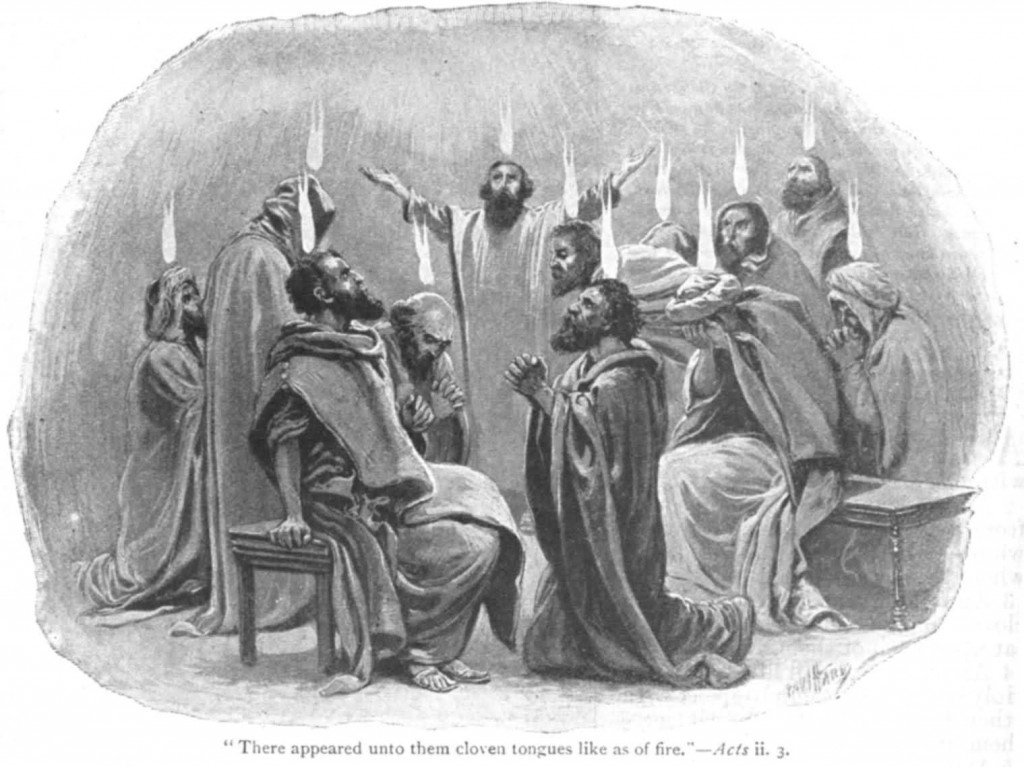Tongues and Other Miraculous Gifts in the Second Through Nineteenth Centuries, Part 1: From the Early Church to the 3rd Century, by Richard M. Riss
Evidence for the operation of the gifts of the Spirit throughout the Church Age.
 In the early history of the church, the gift of tongues was very closely associated with prophesy. The second century author Irenaeus, for example, in quoting Act 10:46, substituted the word “prophecy” where the Biblical passage specifies tongues.1 This association of tongues with prophesy is also evident in the book of Acts. When the apostle Paul was at Ephesus he found some disciples who said that they had been baptized into John’s baptism. He baptized them in the name of Jesus, and when he laid his hands on them, we are told in Acts 19:6 that they began speaking in tongues and prophesying.
In the early history of the church, the gift of tongues was very closely associated with prophesy. The second century author Irenaeus, for example, in quoting Act 10:46, substituted the word “prophecy” where the Biblical passage specifies tongues.1 This association of tongues with prophesy is also evident in the book of Acts. When the apostle Paul was at Ephesus he found some disciples who said that they had been baptized into John’s baptism. He baptized them in the name of Jesus, and when he laid his hands on them, we are told in Acts 19:6 that they began speaking in tongues and prophesying.
This early association of tongues with prophesy should be borne in mind, since there is always the possibility that various early accounts of the manifestation of spiritual gifts refer to both when only one is mentioned, or even to one when the other is mentioned, as in the case of Irenaeus.
The miraculous gifts in general tend to be associated with one another, and accounts of tongues and prophesy are often included in accounts of healings, miracles, revelations, and visions.
The Epistle of Barnabas
Most of the writings of the Apostolic Fathers contain reports of the operations of the gifts.
Wherefore God dwelleth truly in our habitation within us. How? The word of His faith, the calling of His promise, the wisdom of the ordinances, the commandments of the teaching, He Himself prophesying in us, He Himself dwelling in us, opening for us who had been in bondage unto death the door of the temple, which is the mouth, and giving us repentance leadeth us to the incorruptible temple.4
Justin Martyr
After the time of the Apostolic Fathers, one of the earliest Christian writers was Justin Martyr, the apologist of the early second century. His Dialogue With Trypho is a narrative of Justin’s conversation with a learned Jewish man, Trypho, and some of his friends. In Chapters 81 and 82 of this work, he cites the passage in Isaiah 11 which refers to gifts conferred by the Spirit of the Lord, and he says:
Category: Church History, Fall 1998, Pneuma Review


